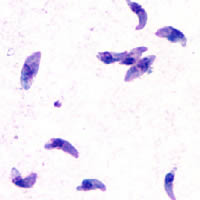
Photo from wikipedia
OBJECTIVE The EULAR recommends that the disease activity of systemic lupus erythematosus (SLE) be stable before pregnancy because complications and disease flares increase if pregnancy occurs while disease activity is… Click to show full abstract
OBJECTIVE The EULAR recommends that the disease activity of systemic lupus erythematosus (SLE) be stable before pregnancy because complications and disease flares increase if pregnancy occurs while disease activity is high. However, some patients have ongoing serological activity even after treatment. Herein, we investigated how physicians decide on the acceptability of pregnancy in patients showing only serological activity. METHODS A questionnaire was administered from December 2020 to January 2021. It included the characteristics of physicians, facilities, and the allowance for pregnancies of patients using vignette scenarios. RESULTS The questionnaire was distributed to 4,946 physicians, and 9.4% responded. The median age of respondents was 46 years, and 85% were rheumatologists. Pregnancy allowance was significantly affected by duration of the stable period and status of serological activity (duration: proportion difference, 11.8 percentage points [p.p.]; p<0.001; mild activity: proportion difference, -25.8 p.p; p<0.001; high activity: -65.6 p.p.; p<0.001). For patients with high-level serological activity, 20.5% of physicians allowed pregnancy if there were no clinical symptoms for six months. CONCLUSIONS Serological activity had a significant effect on the acceptability of pregnancy. However, some physicians allowed patients with serological activity alone to become pregnant. Further observational studies are required to clarify such prognoses.
Journal Title: Modern rheumatology
Year Published: 2023
Link to full text (if available)
Share on Social Media: Sign Up to like & get
recommendations!